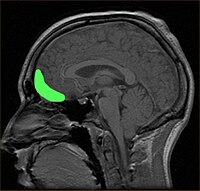
Persons in remission from recurrent low back pain alter trunk coupling under dual-task interference during a dynamic balance task
Sign Up to like & getrecommendations! Published in 2020 at "Experimental Brain Research"
DOI: 10.1007/s00221-020-05772-4
Abstract: This study investigated effects of cognitive dual-task interference and task prioritization instructions on task performance and trunk control during a dynamic balance task in persons with and without recurrent low back pain (rLBP). First, we… read more here.
Keywords: dual task; task; trunk coupling; balance ... See more keywords

Additional effects of a cognitive task on dual-task training to reduce dual-task interference
Sign Up to like & getrecommendations! Published in 2020 at "Psychology of Sport and Exercise"
DOI: 10.1016/j.psychsport.2019.101588
Abstract: Abstract Objective When we perform dual-tasks in daily life, task performance is generally reduced. As these reductions in performance (i.e., dual-task interference) are responsible for various accidents such as falls, the repeated practice of dual-task… read more here.
Keywords: dual task; task training; task; task interference ... See more keywords

The Effects of Dual-Task Interference on Visual Search and Verbal Memory.
Sign Up to like & getrecommendations! Published in 2022 at "Ergonomics"
DOI: 10.1080/00140139.2022.2061053
Abstract: The operational costs of multi-tasking are more pressing given the increase in wearable technologies (head up displays; HUDs) that facilitate multitasking. Often multitasking comes with performance costs, where addition of more tasks impairs performance of… read more here.
Keywords: dual task; visual search; task; task interference ... See more keywords

The Effects of Counting the Stride Numbers on the Parkinsonian Gait: Suggesting a Possible Reason for Dual Task Interference
Sign Up to like & getrecommendations! Published in 2019 at "Basic and Clinical Neuroscience"
DOI: 10.32598/bcn.9.10.245
Abstract: Introduction: Parkinson Disease (PD) is a degenerative and progressive disorder of the central nervous system. It results from degeneration of Substantia Nigra pars compacta (SNc) of the Basal Ganglia (BG). Gait disturbances in PD patients… read more here.
Keywords: dual task; task; counting stride; gait ... See more keywords

Asymmetric Influence of Dual-Task Interference on Anticipatory Postural Adjustments in One-Leg Stance
Sign Up to like & getrecommendations! Published in 2022 at "International Journal of Environmental Research and Public Health"
DOI: 10.3390/ijerph191811289
Abstract: This study investigated the differences of anticipatory postural adjustments (APAs) in a one-leg stance (OLS) that appear according to lower-extremity dominance and dual-task interference. Thirteen young, healthy, male volunteers performed the OLS task under the… read more here.
Keywords: dual task; leg; anticipatory postural; task ... See more keywords